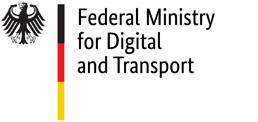BG Verkehr / Dienststelle Schiffssicherheit
Abteilung Maschine
Brandstwiete 1
20457 Hamburg

Holger Steinbock
Phone: +49 40 36137-217
Fax: +49 40 36137-204
Mail: maschine@bg-verkehr.de

Jörg Heuckeroth
Phone: +49 40 36137-231
Fax: +49 40 36137-204
Mobile: +49 171 50 57 038
Mail: maschine@bg-verkehr.de
Bundesamt für Seeschifffahrt und Hydrographie
Referat S15 - Umweltschutz im Seeverkehr
Bernhard-Nocht-Straße 78
20359 Hamburg

Katrin Ewert
Phone: +49 40 3190-71500
Fax: +49 40 3190-5000
Mail: marpol@bsh.de
Emission limitation
- Fuel oil and sulphur contents
- Overview of fuel oil suppliers
- Sulphur Emission Control Areas (ECAs)
- EU Emission Trading System (ETS)
Fuel oil and sulphur contents
For the protection of the environment and health, the International Maritime Organization IMO stipulates a strict sulphur emission limit. Annex VI of MARPOL establishes limits for nitrogen oxides and sulphur oxides, among other things. We have compiled an overview of the currently applicable sulphur limits in marine fuels (select the slot with Annex VI).
Compliance with these sulphur limits is verified during port State controls among other occasions. Ships that are unable to obtain compliant marine fuel should inform the Federal Maritime and Hydrographic Agency (BSH) prior to entering German waters. Please use this form for your reporting.
Overview of fuel oil suppliers
The BSH offers a register of fuel oil suppliers on its website (select second slot with Annex VI). In the application, shipping companies can easily and conviniently find local fuel oil suppliers by filtering for location, type of fuel oil and delivery method.
The list of suppliers is updated regularly; it is for your information and is not necessarily exhaustive. Please get in touch with the BSH if any suppliers on the market are missing in this register.
Sulphur Emission Control Areas (ECAs)
The North and Baltic Sea have been designated as Sulphur Emission Control Areas, so-called SECAs, by the IMO. While operating in these regions the sulphur content of the fuel used by ships may only be a maximum of 0.1%. The aim of this requirement is to lower sulphur emissions by marine traffic and improve the quality of the air in the ports and in the territorial seas.
The Federal Maritime and Hydrographic Agency (BSH) operates measurement stations at the coasts of the North and Baltic Sea monitoring compliance with the SECA limits of ships passing by. If the measurements show an infringement of the sulphur limits, the BSH informs the water police in near real-time who will initiate the investigation. The BSH inflicts penalties for infringements as administrative offences provided it is not a case of criminally liable air pollution. Fortunately, 99 percent of ships that have been monitored so far used compliant fuel.
Also in North American sea areas including Hawaii as well as the Caribbean under US administration extending out 200 nautical miles from the coast, a maximum sulphur content of 0.10 % in ship fuel is mandatory (Emission Control Areas – ECAs). In addition, stricter nitrogen oxide (NOX) emissions apply since 2016.
Emission Trading System (ETS) of the European Union
The Emission Trading System of the EU is an economic instrument to limit the greenhouse gases emitted within the EU. Within the EU ETS framework, companies of industry, air transport and shipping acquire emission allowances at auctions or from other companies or sell them themselves. There is only a limited amount of emission allowances available in total, depending on the cap of emitted CO2 equivalents.
Since1 January 2024, sea-going ships from 5000 GT take part in the Emission Trading System of the European Union. From 1 January 2025, the ETS is extended to include general cargo ships between 5000 and 400 GT as well as offshore ships from 5000 GT. The actual trade with emission allowances begins once emission have been entered into the Union registry for the emitting period of one year.
In Germany, the German Emissions Trading Authority (DEHSt) manages the Union registry. In this registry, every shipping company receives a maritime operator holding account (acc. to the definition in the EU ETS Directive). Any trading activity may only be conducted via this account. Several ships of one company can be registered in a single account.
The Emission Trading System is applied in accordance with Regulation (EU) 2023/957 and Implementing Regulation (EU) 2023/2599.
Shipowners can contact the DEHSt customer service via emissionshandel@dehst.de.

